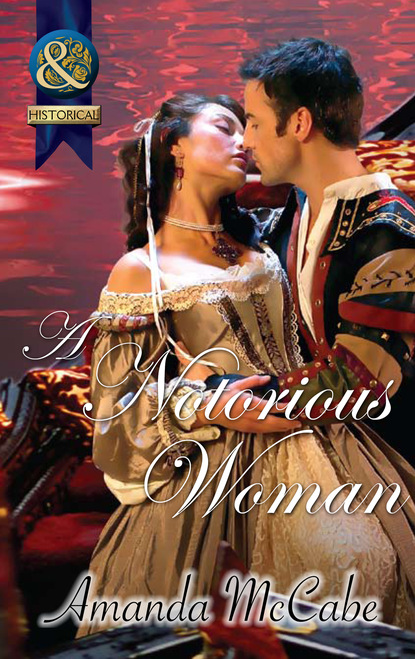
Полная версия
High Seas Stowaway
“Naught, of course. But she died anyway, poor soul, and her baby, too. Diego vowed to kill the captain, to have revenge for what he had done.”
“And he happened to catch up with him in my tavern.” Bianca shook her head at the madness of it all. The whole blood-soaked scene had not been for money or position, then, but for love. The greatest insanity of all.
“Captain Grattiano will pay for any damage, señora,” Mendoza hastened to say. “We’re all very grateful for what you’ve done.”
“You shouldn’t thank me yet,” she said. “Go, see to your captain. I must finish my marketing.”
“Of course, señora.”
As they parted, Mendoza on his way to the tavern and Bianca turning towards the steps that led down to the plaza, she suddenly called back, “Señor Mendoza!”
“Yes, señora?”
“Which ship is the Calypso?”
He pointed towards a vessel in a small, sheltered cove, somewhat apart from the other vessels. “’Tis that one. The repairs are nearly finished, you see. As soon as the captain can travel, we’ll be setting off.”
“Setting off for where?”
Mendoza smiled again. “For home, at last! It’s been an age since we saw Vista Linda.”
Vista Linda. Home. Where would that be? But before she could ask him, the quartermaster set off, whistling a sea chanty into the breeze. Bianca turned again towards the plaza, more puzzled than ever.
Her mother had always dealt in the uncertainties of life, the mysteries. Love, death, changes in fortune—she could glimpse it all. Bianca preferred the realities. Work, companionship, a cosy fire, a goblet of good wine. Things she could see, quantify. Despite all the allure of the vast, wide sea, of adventure and freedom, she knew that such things did not last.
Balthazar Grattiano was like the sea. Changeable, stormy, ever beautiful and intriguing. And, like the sea, he could swallow up all she had, all she was, in a moment. A person had to be tough, cruel even, to survive in this New World, and the Grattianos had never been noted for their gentle benevolence. Why, then, had Balthazar bothered to turn back to Havana for the safety of a woman? And what had he done to make his crew so devoted they would follow him there so willingly?
Well, most of them followed. Bianca shivered as she remembered that man, Diego, and his dead eyes.
Those thoughts all swirled around in her head, indecipherable as a dream and twice as confusing, as she entered the main plaza of Santo Domingo. At one end of the cobbled square rose the cathedral, Santa Maria La Menor. Unfinished, it was still grand and imposing, gleaming a pure white in the harsh morning light. The doors stood open, beckoning the faithful into the cool, shadowy gloom, where they could lay their sins before the gilded altar.
Bianca turned away from the solitary splendour of the church to the bustle and noise of the market. At the centre of the plaza was a raised stone cross, and around this were arrayed the tables and booths of farmers and merchants. Every week they took the long journey from their inner-island estancias and smallholds to ply their wares to town dwellers.
Bianca surveyed the fruits and vegetables: brilliant oranges, lemons and guava, mounds of starchy cassava. There were barrels of sugar, left from what had not been exported from the island’s thirty-four mills, jars of molasses for rum, and small buckets of precious spices. But these were not what she wanted. She examined the beef from the cattle stations, the pork from the wild pigs who ran free all through the mountains. Her patrons liked familiar, Spanish sorts of food, and these would make the hearty stews and roasts she sold so well.
As she paid for her purchases, she remembered Venice, and the tales her mother told of banquets in the grand palazzos. The long, damask-draped tables covered with platters of chicken amarosa, trout and leeks with lemon sauce, capon, plump strawberries, bright Majolica bowls overflowing with sweetmeats, goblets of fine wines. The hundreds of wax candles casting a warm glow over the silver and gold plate, the satins and jewels of the patrician diners. It all sounded like a fairy story to her, as far from their simple home on a back alleyway as the gods on Olympus!
And how much further it was from here, an entire world away. There was no capon for her simple table, just pork haunch and roasted cassava. Rum and ale in place of wine.
“Did you hear, Señora Montero?” one of the merchants asked, as she examined his vegetables. “One of the storehouses was robbed last night! I hope there are no pirates abroad again.”
“Especially with a contessa at the fortress,” his wife added. “They say she is Señor de Alameda’s special guest…”
Bianca made appropriate noises about how shocking it was, but she walked away still distracted by her own thoughts. She had not remembered home in a very long time. It did her no good to remember, as this place was her life, her reality, now. The bittersweet, jewel-like beauty of Venice was lost to her, just as her mother was. Just as the coins from the storehouse were lost to “pirates”.
It was surely Balthazar who made her think of it now. Who made her so very confused and uncertain. Who made her…
Who made her wish she had baked peacock to offer him instead of stew. She should not care one whit what the man ate, where he went, or what he did. What he had done these last seven years.
She should dump the stew over his handsome head and push him out her door.
Bianca had to laugh at the vision of Balthazar with dark, greasy broth dripping down his face. No matter what happened to him in these last long years, surely it had never been anything so undignified as that.
As she turned back towards the tavern, the heavy basket balanced on her hip, she remembered what Mendoza had said. It had been nearly seven years since Balthazar went to sea. Thus he must have left Venice soon after she herself fled. Why was that?
Ah, yet another mystery. Surely enough of them surrounded Balthazar to fill that now-empty storehouse. She was a patient woman; she would discover all in time, and then she would know how to act. But for now she had work to do. The sun was high in the cloudless sky, and the hours were getting away from her.
She couldn’t allow even Balthazar Grattiano to interfere with her business.
Yet as she hurried along the ramparts, now crowded with people out to gossip about the thefts, she couldn’t help but glance towards the cove where the Calypso sheltered. It was not a large ship, she noticed. A midsize caravel, perhaps seventy feet long and twenty-five feet wide. Once her mainmast was repaired, it would have the square-rigged mainmast and foremast, and a lateen-rigged countermizzen just aft the mizzen.
It was not a conspicuously rich or impressive vessel, especially marked with storm damage as she was, but, after her years with Juan, Bianca could see the true worth of any ship. “The best ships that sail the seas,” Juan used to call caravels, and this one was a beauty. Lightly built, versatile, it could go anywhere, even sail in crosswinds with a skilled captain at her rudder. With a stern rudder, and those lateen sails, it would be very responsive—especially at the hands of someone like Balthazar.
Bianca had no doubt that Balthazar was a skilled captain indeed, as capable of charming a ship as he was of charming a woman.
But Bianca was determined not to be charmed. Not this time. Not ever again.
Конец ознакомительного фрагмента.
Текст предоставлен ООО «ЛитРес».
Прочитайте эту книгу целиком, купив полную легальную версию на ЛитРес.
Безопасно оплатить книгу можно банковской картой Visa, MasterCard, Maestro, со счета мобильного телефона, с платежного терминала, в салоне МТС или Связной, через PayPal, WebMoney, Яндекс.Деньги, QIWI Кошелек, бонусными картами или другим удобным Вам способом.












